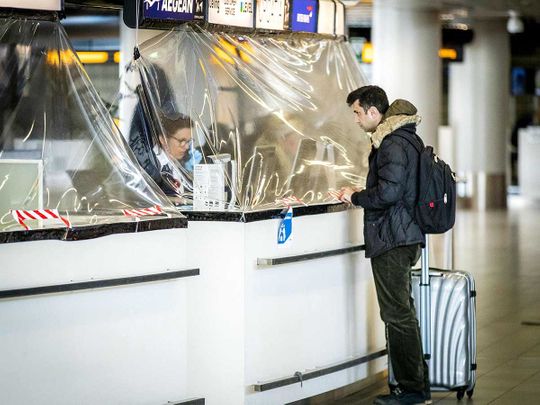
Amsterdam: The number of confirmed coronavirus cases in the Netherlands rose by 1,172, or 16 per cent, to 8,603, health authorities said on Friday, with 112 new deaths.
The country’s death total is now 546.
The Netherlands National Institute for Health (RIVM) said in its daily update that the increase in rate of spread of the virus appears to be slowing.
It said it hoped to be able to say “within several days” whether social distancing and other measures taken mid-month were working to slow the outbreak’s spread.
The spread of coronavirus is giving rise to new social taboos in famously libertine, free-wheeling Amsterdam, with many no longer hugging their friends or pushing their way past others, to avoid the risk of infection.
546
people have died of the coronavirus in the Netherlands.The city’s famed stone bridges and ancient canals are mostly empty, brothels, museums and marijuana cafes closed. One of Europe’s biggest tourism hubs is now mostly a place for quiet bike rides and shopping alone.
“A couple of days ago it was very much that a lot of people were not used to it (restrictions) yet, so I think they were really not thinking about it,” said Hannah Linnebank, out for a walk in the city centre with her roommate.
Now social norms against contact are quickly taking hold.
“Every day we are pushed a little bit further, like really (to) be aware, and people get angry if you get too close, which is fair,” she said.
The Dutch government on Monday tightened an earlier ban on public gatherings of over 100 people. Now no more than three people are allowed to be together in a public space unless they are a family, on pain of a 400-euro ($440) fine.
Others must maintain a 1.5-metre (5-foot) distance from each other.
Bicyclers and scooters, not restrained by much traffic, zip through the streets delivering food or packages. Trams are still running - with few or no passengers. Grocery stores are open, but some with more cleaners than customers.
Signs in parks remind people to keep their distance, though inevitably not all do.
“Here people tend to push with elbows, don’t follow the line...So I kind of appreciate that the people (now) have to be a bit more restricted and give you more space,” said Cathy Levesque, a longtime resident originally from Canada.
“Well, it’s a new way of living, it’s a new dance, a dance we do together, said Bert Wagenaar van Kreveld, out for a bike ride near Amsterdam’s central Dam square.
“It’s hard. I’m very strict about it, I have a close friend, we see each other but we don’t hug, and I like to hug my friends.”











